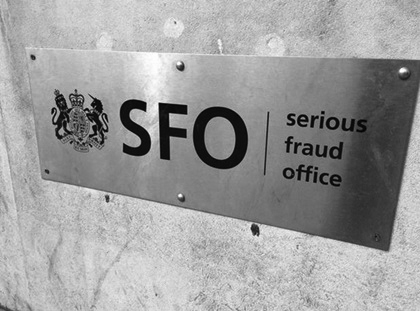
What Happens During a Serious Fraud Office Investigation?
September 15, 2023Being subjected to an investigation by the Serious Fraud Office (SFO) can have severe consequences for any organisation, regardless of its size or global reach. The potential reputational damage alone can negatively impact share prices and revenue, making it crucial to understand the process and implications of an SFO investigation. That is why we highly advise contacting a serious fraud solicitor as soon as possible if you are contacted about or are under a fraud investigation.
The Powers of the SFO
As an independent UK government department, the SFO is tasked with investigating and prosecuting large-scale fraud and corruption cases. The SFO primarily focuses on serious and complex fraud cases and bribery and corruption cases. Their statutory powers, outlined in the Criminal Justice Act 1987, include requesting documents, conducting interviews, and obtaining search warrants. While they lack the authority to arrest or detain individuals, they collaborate with the police when necessary.
The Process of an SFO Investigation
SFO investigations are known for their thoroughness and can take an average of five years to complete. The investigative process involves several stages:
- Gathering intelligence: A specialised SFO intelligence team collects information related to the alleged fraud, which is then assessed to determine if a formal criminal investigation is warranted.
- Multi-disciplinary investigation team: A case controller assembles a team with diverse expertise to investigate various aspects of fraud allegations.
- International assistance: The SFO’s international aid team collaborates with overseas courts and prosecutors when necessary.
- Gathering documents and information: Relevant documents are obtained, and witnesses are interviewed to build a comprehensive case.
- Asset restraint: In some cases, the SFO may freeze assets linked to the alleged fraud.
- Prosecution decision: The case controller reviews the collected information to determine if there is a sufficient legal basis for proceeding with a prosecution.
Factors Considered for Prosecution
The SFO weighs several factors when deciding whether to prosecute. These factors, outlined in the Code for Crown Prosecutors, include:
- The seriousness of the offence.
- Availability of appropriate sentencing powers.
- Clarity and conciseness in presenting the case.
- Passing the evidential test: Sufficient evidence must be present to secure a conviction reasonably.
The evidential test requires that there is enough evidence to convince an objective, impartial, and reasonable jury or judge that the defendant is more likely than not guilty of the charges.
Even with evidence of fraud, a case may not proceed if it fails to meet this test. Additionally, the SFO considers the public interest test, which considers various factors such as the level of culpability, harm to victims, and impact on the community.
Challenges and Negotiations
Responding effectively to an SFO investigation requires leveraging legal expertise from serious fraud solicitors to challenge the assumptions made by the SFO. Challenging the evidence, legality of search warrants, or credibility of information can make a difference in whether a case proceeds or is dropped. Recognising and exploring opportunities to negotiate with the SFO is crucial to contacting a serious fraud solicitor to discuss your case.
Search Warrants
The SFO can obtain search warrants for premises and addresses of individuals suspected of involvement. Challenging search warrants can be done through judicial review in the High Court if the SFO fails to follow proper procedures, potentially leading to the quashing of a warrant and the return of seized property.
Evidence
Access to relevant information and material seized during the search is vital for mounting a defence. Ensuring that the defence team exercises its right to access all available information, including utilising the law of disclosure, can be crucial in countering the SFO’s allegations and assumptions.
Negotiation
Engaging in negotiation with the SFO can present opportunities for a favourable outcome. Demonstrating cooperation and conducting internal investigations can be viewed positively by the SFO. Cooperation, including sharing findings with the SFO, may increase the likelihood of the SFO being more lenient and open to negotiation. Negotiating with the SFO involves:
- Understanding the desired outcome.
- Devising a strategy.
- Convincing the SFO of a genuine commitment to rectifying wrongdoing.
Facing a Serious Fraud Office (SFO) investigation can be an alarming experience for organisations and individuals. In such circumstances, it is crucial to take immediate action and seek legal professionals’ expertise in serious fraud cases. By engaging with Cunninghams serious fraud solicitors, you can access confidential and effective assistance from experienced solicitors based in Manchester and London, with over 20 years of experience defending clients’ serious fraud charges. Our team of experienced fraud solicitors have the expertise to help you build a strong case and to support you through each stage.
Cunninghams initial advice is always free of charge and can be contacted at 0800 051 2542 or enquire online.
